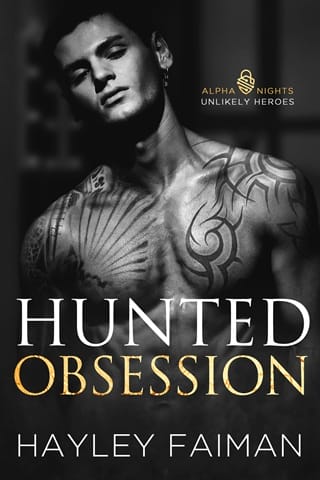Chapter Twenty-Five
TWENTY-FIVE
SEPTEMBER 1987
Irving Rivkin was perplexed.
He’d been trying—he really had—to get on Goldie’s good side again. He’d even stopped calling her Goldie, which, in his opinion, was a terrible waste of the perfect name.
He still remembered the first time he had heard her great-aunt call her that. It was a common enough nickname in those days, but Irving had never met another girl or woman who was better suited to it. From the first day he had met Augusta, everything about her was exceptional. She was as golden as her name.
She hadn’t liked it, however. Or at least, not at first. Eventually she’d let him use it. But he heard that after he left for Chicago, she never let anyone call her that again.
Irving wasn’t a fool. He knew that he had hurt her terribly. He knew what she must have thought of him then, when their whole neighborhood was swirling with rumors about him and Lois Diamond. And yet, despite his mother’s urgings, he hadn’t had the courage to tell Goldie the truth. Even after Lois left him and his boys were fully grown, he never tried to get in touch. Irving let sixty-two years go by, certain he’d never see Goldie again.
But then, when she showed up at Rallentando Springs, it was like the line from the old Humphrey Bogart movie. Of all the retirement communities, she had walked into his. Miraculously, she was single—she’d never married, not in all those years. His heart had leapt when he’d learned that fact, but after the elation came overwhelming guilt.
From the minute he spotted her, he had let himself hope that fate had brought them together again, that they would finally have their second chance. At least until Nathaniel Birnbaum showed up and everything fell apart again. Irving knew he shouldn’t have gotten so carried away at the barbecue, but when he saw the two of them on the dance floor, something in him had snapped. After the fiasco with the dessert table, Irving tried his best to explain. But Goldie had looked at him with such disgust that he knew it was too late. Do you really think I’d fall for the same stunt twice?
The resentment in her voice, the anger and hurt—none of it was about the strawberry cheesecake clinging to the backside of Birnbaum’s trousers. It was a heartache sixty-two years in the making. A heartache that he had caused her to suffer. It would be selfish to risk hurting her a second time. So in the hours that followed the incident, Irving made up his mind to let Goldie go. He would not seek her out again.
Only now, she was the one who was seeking him out!
Irving knew that Goldie thought he was the same man—the same foolish man she had loved back in Brooklyn. In large part, he supposed that this was true. But there were different facets to him now. He chuckled to himself as he recalled her expression when he showed up at the book club meeting. But even better was the look on her face when he pulled himself out of the pool that first morning.
What do you think you’re doing? she’d said. As if it hadn’t been obvious. He’d never told her that he’d become a swimmer, too; never explained how, after his marriage fell apart, he tried searching for solace doing what she loved. She’d told him once that swimming made her feel brave, so he decided to give it a try. When he was in the water, the world seemed lighter and he could almost forgive himself for all the ways he had failed her.
The next day, despite his presence at the pool—or perhaps because of it—Goldie had shown up early again. She got there a little after seven and swam alongside him for half an hour. At first he hadn’t known she was there—he felt her movement in the water before he spotted her. When he finished, she followed him out of the pool and dried off on the opposite side of the patio. He thought it wisest not to ask why she had again come so much earlier than usual. He made a point of not lingering long, not getting too close, not saying too much.
In his mind, she was still a matchless being—rare, exotic, wary, exceptional. The last thing he wanted to do was spook her into running away again.
The next morning, he convinced himself that the day before had been a fluke. There was no way she would show up a third time; it was foolish to allow himself to hope. When he felt her presence beside him again, his eager heart hammered against his chest. And when he finally pulled himself out of the pool, he was grateful she could not differentiate his tears from the chlorinated water that clung to his skin.
Vera was yet another complication. He’d tried to apologize to her the day after the barbecue, but she hadn’t let him finish his sentence. “It’s fine,” Vera said, dropping off a casserole. “I don’t want to talk about it.”
“Please, Vera, let me explain. Let me apologize.”
“I’m too old for explanations and apologies.”
“Then how can we have a conversation?”
“Enjoy the casserole. I’ve got to go.”
Irving knew he had to end things with Vera. No more letting her make him dinner. No more accepting the meals she delivered. It was time to be brutally honest, no matter how difficult that might be.
In the end, though, he didn’t need to say anything. One day Harold told him that Vera and Goldie had been seen arguing in the clubhouse hallway, and the next, Vera showed up at his door, holding another Jell-O mold. This time the Jell-O was electric red—cherry or raspberry, if he had to guess. In any event, it wasn’t quite set, which, he realized later, was intentional.
“Hello, Vera,” Irving said.
Vera didn’t greet him back. She lifted the ring-shaped aluminum pan over his balding head, flipped it over, and watched in silence as the crimson concoction oozed onto his scalp, slid down his face, and fell in clumps around his shoulders. After Vera left, Irving took off his T-shirt, wiped his head with it, and tossed it in the trash. There was no way those stains would come out in the wash.
On the fifth day when Goldie showed up to swim, Irving had to work harder to keep his distance. Was this what their future was going to look like? A bit of nodding, a modicum of eye contact, and little to no conversation? Only in the water did he feel connected to the woman he had once known so well. This was a torture all its own, but one he was willing to suffer through—swimming beside her, the synchronicity of motion, knowing her skin was close enough to touch, even if he wasn’t allowed to touch it.
This time, when both of them finished their laps, neither moved toward the stairs right away. Goldie spread her arms on the surface of the water, as if smoothing the wrinkles from a bedsheet. She kept her head down like a child searching for something shiny at the bottom of the pool.
“My birthday is in a week,” said Goldie, still gazing into the water.
“How could I forget?” said Irving. “October the third. You’ll be eighty years young.”
Goldie looked up and nearly smiled. “My niece, Jackie—Bess’s daughter—is coming from New York to celebrate. She wants to have a little party for me, take me to dinner with some of my friends.”
“That will be nice for you,” said Irving, trying his best not to sound too hopeful. It would be a mistake, he thought, to let her know how much he yearned for an invitation.
“Honestly, I don’t know many people yet.”
“You and Shirley seem friendly,” Irving offered. “I’m sure she would love to come.”
“Yes, I’ve asked her,” Goldie said, lowering her head again. “I’m going to ask Nathaniel, too. He knew her parents… I was hoping he would share some memories of them with her.”
Irving peeled off his swim cap—his head was suddenly boiling hot. “Good idea,” he said, swallowing down the lump in his throat. Slowly he headed toward the steps to pull himself up and out of the pool.
“Jackie thinks you should come, too,” said Goldie, calling out after him.
He turned around on the bottom step and forced himself not to look too excited. “Is that an invitation?”
“Yes,” said Goldie, “it is. But you have to promise—you have to swear —that you’ll get along with Nathaniel. No arguing, no yelling. No pushing.”
Irving held one hand up in the air, like a Boy Scout taking a solemn oath. “I swear,” he said. “I’ll be good as gold.”
“And try to think of some stories for Jackie. That’s why she suggested you come along—she’d love to hear more about what life was like in Brooklyn when her parents were young.”
Irving couldn’t help it—he winked. “Oh, I’ve got some stories,” he said.
 Fullepub
Fullepub 



